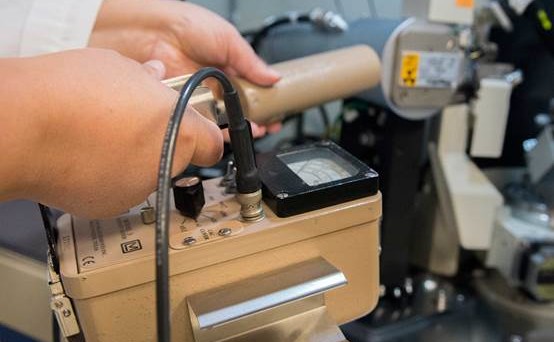
What is your scientific background?
 I received my BS in Biology, with a concentration in wildlife, and a minor in Anthropology from Indiana University of Pennsylvania (IUP). I then originally started out as a secondary biology education major, but soon realized that teaching wouldn’t be my forte.
I received my BS in Biology, with a concentration in wildlife, and a minor in Anthropology from Indiana University of Pennsylvania (IUP). I then originally started out as a secondary biology education major, but soon realized that teaching wouldn’t be my forte.
I thought research would be a good idea, and so switched my major. While attending classes, I began in internship with the Pennsylvania Game Commission. I performed a variety of tasks; including tracking radio collared black bears.
During my internship, I became aware that I would have to go on to graduate school. I began to work on my Master’s degree, also at IUP. I worked as a field tech on a variety of jobs and began my thesis on comparing and contrasting the dietary habits between male and female fishers in western Pennsylvania.
However, due to unfortunate life circumstances; I was unable to finish it and was forced to get a job. I started out in an environmental water testing lab.
After working there for almost two years, I decided it was time for me to search for another job. I sent my resume in to Westinghouse in Columbia, SC, where I was contacted about a technician position in their Health Physics department.
The Columbia site is where they manufacture and assemble the fuel cells for nuclear power plants. As a health physics (HP) technician, I am responsible for the health and safety of the employees in the plant, as well as for the impacts the plant has on the environment.
How do you spend your day in your job?
Because we are involved with so many aspects of the operation of the plant, day to day responsibilities can vary greatly. One day, I could be processing air samples in our little lab. This is where we monitor the air quality of the chemical side of the plant for exposure to Uranium. On days like this, I’m considered to be a lab technician.
The next day, I could be assisting operations in their daily activities. On days like this, I’m considered to be a floor technician. This can range from assisting operations in the Pellet area, Conversion, Maintenance, and various other departments located on the Chemical side of the plant (which is where the uncontained uranium is present).
As a HP tech, I am also responsible for responding to various events that can occur at the plant.
As a HP tech, I am also responsible for responding to various events that can occur at the plant. Such events include ammonia spills, UF6 gas releases, contaminated employees, nitric acid spills, and a criticality (the worst).
Luckily, Westinghouse has never had a criticality; however, we do perform a criticality drill frequently. With all these various events, a minimum of two HP techs respond. In a nitric acid or ammonia spill, operations clean the area.
We assist our first responders any time an employee is injured on the Chemical side in order to determine if the employee was exposed to an unusual amount of uranium.
I also have several programs that I work on. Currently, I am working in conjunction with Conversion in an effort to minimize exposure levels during one of their many jobs that can raise our exposure limits.
Starting in April, I will be performing a biodiversity study and developing a species index of the macro invertebrates (mostly insect larvae) and plant species located along the small stream that our storm drain run off flows into. This coincides with the environmental program the plant has established to determine our impact on the surrounding environment.
What makes this a science job?
I use a lot of my training from my prior lab job and my many years in college. The two projects that I am currently working on, I formulated based on observation, which in reality, is the first step in science.
I kept seeing trends in data, and decided we should look into it further. I formulated a hypothesis, and thus began to carry out the data analysis needed. I am still collecting data with Conversion, and hopefully, I will have this project finished at the end of this year with a practical solution.
My first few weeks with the company felt like I was almost back in the classroom, learning about the specific types of radiation we have at the plant, as well as the daughter products that result from the decay rate of uranium, and all the procedures in place.
What do you like most about your job?
I think what I like most about my job is the interaction I have with all the different departments.
I think what I like most about my job is the interaction I have with all the different departments. Most of the time, I get to be easy going with them, but every now and then, I have to tell them to rope something off or find/correct a problem that is causing an air sample to go above our limits.
When something like that happens, I often assist them in finding and correcting the problem. It’s fun getting to play ‘detective’ every now and then.
As an HP tech, I had to develop what we call the ‘principal voice’, which is when there is a problem on the floor, causing an air sample to spike, and I have to tell operations to put a respirator on and find the problem.
I found out quickly that they don’t always like to cooperate. But I also found that you have to find the area between being bossy and making them realize that it is for their own safety, as well as the safety of the rest of the employees in the plant, to find and correct the problem.
Do you have any advice for current graduate students and postdocs looking to move out of the lab?
I think the best advice I have for current graduating students is not to fret. Go on interviews. Apply for jobs that you don’t seem like you’re qualified for.
It may seem at first that you wasted so much time, energy, and money into a degree that you won’t use if you’re not in a lab. But that’s not the case. You’ll use the skills you obtained in the lab and in school, and you will build upon them.
You’ll develop new skills that you never thought you would. And you’ll find out that all the years of education and training led you to right where you are supposed to be. It may not be a research job, but it will incorporate more science than you could have imagined.
Where can you be reached if readers want to ask you more about your job?
People can email me directly at k.a.ringbloom@gmail.com.
Do you have a job in science that you love? Know someone who can’t stop talking about their science career? Comment below or email me at dana.berry@biomedcentral.com if you’re interested in participating in our series. And join the conversation by using the #moretoscience hashtag on twitter.
Comments